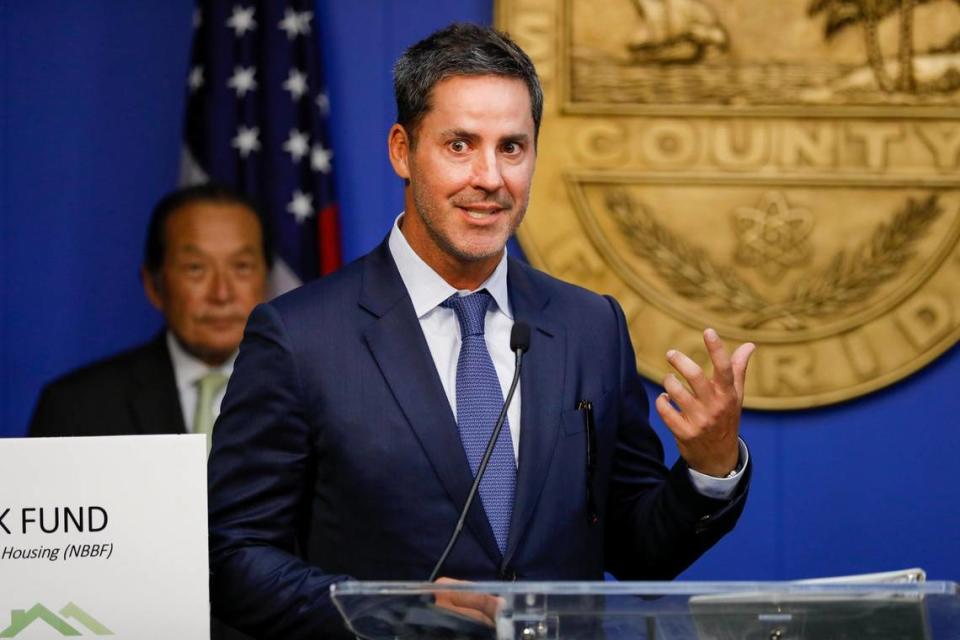Mayor launches ‘Tinder, except for housing’ to match investors with low-cost projects
Mayor Daniella Levine Cava on Friday rolled out the “Building Blocks Fund” program, which she described as a matchmaking service to increase affordable housing that would pair developers with funding sources.
Investors and lenders willing to spend a combined $55 million in Miami-Dade County affordable housing projects joined the new initiative aimed at helping to address the soaring prices in Miami’s housing market.
The county’s role will be to recruit investors into offering a certain amount of money over several years, and to manage an advisory board to help match affordable housing projects with financial backers.
“This is like Tinder, except for housing,” Levine Cava said, referring to the dating app. “We want you to step up, go online, and find the funder that’s right for you,” she said in a message addressed to developers of affordable housing.
Information on the program is available at miamidade.gov/buildingblocks.
READ MORE: ‘People living in metal tool sheds.’ Miami-area mayors discuss housing crisis
Seven funders signed up for the debut of the program, with plans to steer $55 million in Miami-Dade projects. The county’s Public Housing and Community Development Department, which reports to Levine Cava, committed another $15 million to the launch.

The commitments do not bind the participants to anything. A county document signed by funder Red Stone Equity Partners and released by the mayor’s office puts the word commitment in quote marks, and notes participation “will not obligate RSE to finance any projects.”
Instead, the New York-based affordable housing investor agreed to “use good faith and best efforts” to utilize at least $10 million in its financing “for affordable or workforce housing projects in Miami-Dade County through December 31, 2025.”
Red Stone CEO Eric McClelland said the $10 million investment over three years won’t be a challenge. “We will exceed that,” he said. “We’re going to keep investing in Miami-Dade County as much as we can. It’s very competitive.”
The company already has about $80 million invested in Miami-Dade projects that use federal affordable housing subsidies to make low-income housing profitable for developers and their investors.
McClelland said he’s hoping the Miami-Dade program will help Red Stone move into projects aimed at “workforce” housing ventures, which are built for buyers who make too much to qualify for “affordable” programs but struggle to buy or rent at market prices.
“We call it the missing middle,” he said.

Michael Liu, the county’s housing director, said he sees the Building Blocks program giving investors like Red Stone a chance to have a larger presence in Miami-Dade.
He also expects the effort will bring easier access to more funding for developers, who otherwise would rely on a mix of county subsidies and backing from a short list of existing lenders in the market.
“When you look at a deal, you see all the same players,” Liu said. “This will inject some competition into it.“

 Yahoo Movies
Yahoo Movies 